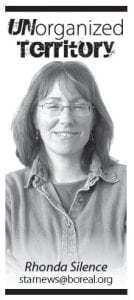There is nothing more disappointing to a reporter than receiving an agenda for an upcoming meeting declaring “closed session.”
Reporters are strange. We actually like meetings—perhaps not three or four a day— but we like the challenge of trying to clarify the rambling conversations and disjointed discussion to create a simple story containing just the facts you need to know.
Every meeting has its challenges. What is the most important thing that needs to be covered? Should we include the off-the-cuff remark that could make an official look bad? Or does the public have the right to know?
It is really uncomfortable to cover a meeting when emotions are high. It’s not pleasant to see community members snapping—or even swearing— at one another.
I understand that is why public officials like closed meetings. It’s easier to work things out without a room full of citizens studying every word. And if it’s not a room full of citizens, it’s us pesky reporters, writing it all down to share with more than a room full of citizens.
It is really frustrating to sit through a meeting until the closed session and then having to leave, just when the discussion is getting interesting. What people really want to know is what is being talked about with no scrutiny.
It’s irritating, sitting in a hallway, chatting with the other people who got “kicked out” of the meeting, waiting to be let back in for the briefest explanation of what was discussed.
That is why I was so delighted with the representatives from School District 166 and the Cook County board during the debate over attaching the proposed community center to the west end of the school building. When I saw the announcement that a negotiating meeting had been scheduled, I assumed the meeting would be closed.
But no, the agenda said nothing about a closed session. So I gathered my pens and tablet and headed to the school for the meeting—fully expecting to get sent packing.
But I wasn’t. I was able to sit and listen as the building appraisal was reviewed and the offers and counter-offers were made. And unlike so many meetings, no one turned and admonished me not to write about what was discussed.
When the follow-up meeting was scheduled this week to really nail down the purchase price and other details, I thought I surely would not be welcome. Fortunately, I was wrong. I was once again allowed to be party to the planning. And for a change—it’s not often that I’m not pointing out problems with government— I want to say thanks to the county and school boards. They did the right thing, keeping the debate open and aboveboard.
Because no matter how responsible and sensible the decisions made in private session are, there is the perception that there was something sneaky taking place. Just because you have the legal right to close a meeting, doesn’t mean that it is the right thing to do.
Journalism is printing what someone else does not want printed. Everything else is public relations.
George Orwell



Loading Comments